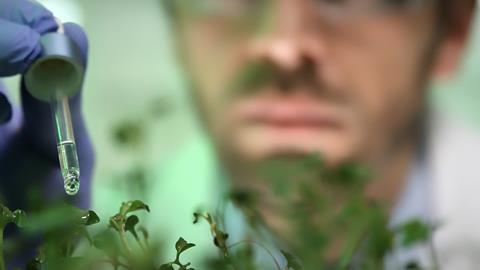The Israeli start-up is using gene-editing technology to design seeds that produce higher yields and faster-maturing crops that can adapt to the changing climate
Israeli agtech start-up BetterSeeds distinguishes itself by its focus on a burning issue of the day that affects all crops – heat stress and drought, as a direct result of climate change.
BetterSeeds uses its own gene-editing technology based on Crispr – a “molecular scissor” that lets scientists change an organism’s DNA – to design seeds that can produce crops that mature faster, produce a higher yield and can adapt to changing climatic conditions.
In addition, the company’s unique gene-editing technology is designed to make the crops adaptable to automated harvesting, cutting the cost of the entire growth and harvesting process. Crispr technology has recently been declared – by regulatory authorities worldwide – as non-GMO.
Established six years ago, the company has developed its own Edge technology, a delivery system that makes Crispr technology applicable across crops, unlike its current limited use.
The system is available, from open-field vegetables through field crops to perennial orchard cultivation. Specific projects include:
- Development of open-field tomato varieties, with improved heat-setting, tolerant to drought and herbicide-resistant to cope with Orobanche spp.
- Development of determinate cucumber varieties to be cultivated in open field with mechanised harvesting for the pickling industry
- Genetic improvement of cowpea varieties, adapted to mechanised harvesting as an alternative to soya.
According to CEO Ido Margalit, the Holy Grail is to bring forward significantly the fruit-bearing timetable of perennial crops such as avocados.
“Turning fruit trees and other perennials into seasonal crops means they will take a short time to mature, cutting growing costs and greatly reducing the market risks caused by changing consumer tastes,” he said. “Because the trees will be smaller when they yield fruit, they will also be adapted to automated harvesting.”




